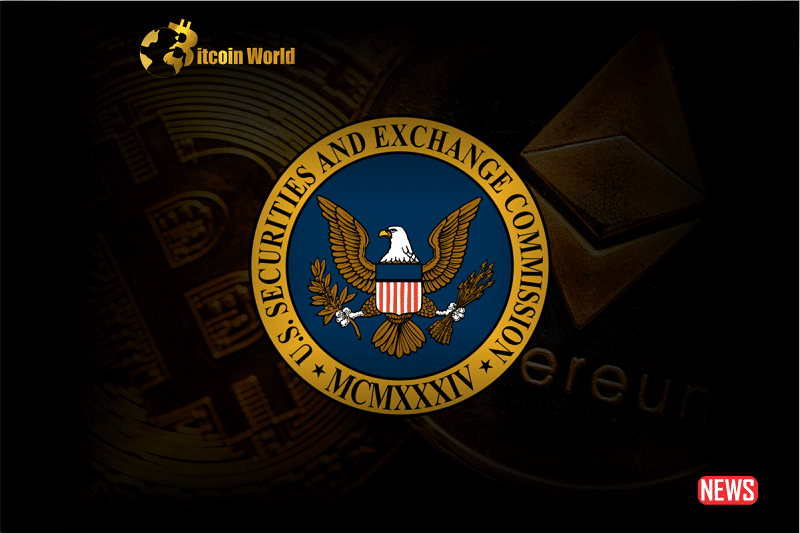Ever feel like the rules of the road are constantly changing, especially when it comes to crypto? You’re not alone. The United States Chamber of Commerce, a major voice for businesses, has stepped into the ring, taking aim at the Securities and Exchange Commission’s (SEC) approach to regulating digital assets. Their recent filing in the Coinbase case speaks volumes about the growing frustration within the business community.
Why is the Chamber of Commerce Getting Involved?
Think of the Chamber as the ultimate business advocate. They’re there to represent their members’ interests in the halls of power – Congress, the White House, and even the federal courts. Filing what’s called an amicus curiae brief (essentially a ‘friend of the court’ brief) is a common tactic when they see a case that could significantly impact the business landscape. And right now, the SEC’s actions in the crypto space are definitely causing ripples.
The Chamber’s core argument? It boils down to one word: uncertainty. They argue that the SEC isn’t providing clear guidance on which digital assets are considered securities under existing laws. This lack of clarity isn’t just an inconvenience; it’s a major roadblock for innovation.
The $1 Trillion Question: Security or Not?
Consider this: the digital asset market is a behemoth, valued at over a trillion dollars. It’s not some niche corner of the financial world anymore. Despite this massive size and its potential for future growth, the Chamber argues the SEC hasn’t provided clear rules of engagement. Instead, they’ve opted for enforcement actions and, as the Chamber puts it, “confusing and inconsistent public statements.” Imagine trying to build a business when you don’t even know if you’re playing by the right rules!
The Chamber’s Three-Point Critique of the SEC
The Chamber’s brief isn’t just a general complaint; it lays out specific concerns. Here’s a breakdown of their key arguments:
- Innovation Killer: Without clear rules, businesses are hesitant to dive into new technologies. Think about it – would you invest heavily in something if you weren’t sure if it was legal? This regulatory fog stifles growth and development in the US.
- Destabilizing the Market: The SEC’s reliance on enforcement actions instead of clear frameworks creates an unpredictable environment. It’s hard for businesses to make informed decisions when the ground rules seem to change on a case-by-case basis. This instability can scare away investment and hinder progress.
- Due Process Violation: This is a big one. The Chamber argues the SEC is violating fundamental rights by not providing clear guidance through formal processes. This makes it difficult for courts to even review the SEC’s legal arguments, further muddying the waters and preventing fair treatment.
The Ripple Effect: Echoes of Frustration
The Chamber isn’t alone in this sentiment. Brad Garlinghouse, CEO of Ripple, which is also facing an SEC lawsuit, has been vocal about the lack of regulatory clarity in the US. He argues that this uncertainty is pushing innovation and capital to other countries. Think of it as a talent drain – businesses and entrepreneurs looking for clear rules might simply set up shop elsewhere.

The SEC’s lawsuit against Ripple executives centers on their sale of XRP, which the SEC claims is an unregistered security. The fact that the Chamber is weighing in on the Coinbase case highlights the broader implications. The outcome of this case could set a precedent for how digital assets are regulated in the US for years to come.
What’s the Solution? The Chamber’s Perspective
So, what does the Chamber think needs to happen? They’re pretty clear:
- Clear Guidelines are Key: Businesses need to know the rules of the game. Vague pronouncements and enforcement actions aren’t enough.
- Engage in Rulemaking: The SEC needs to actively participate in creating a clear regulatory framework through formal rulemaking processes. This provides transparency and allows for stakeholder input.
- Establish a Systematic Process: A consistent and predictable approach is crucial for fostering good governance and regulatory stability.
The Bottom Line: Clarity for Crypto’s Future
The Chamber of Commerce’s involvement in the Coinbase vs. SEC case underscores a critical need for regulatory clarity in the digital asset space. Without it, businesses operate in a state of uncertainty, hindering innovation and growth. The SEC’s current approach, relying heavily on enforcement actions without clear upfront guidance, is being challenged as harmful and unlawful. As Brad Garlinghouse has pointed out, this lack of clarity can force innovation and investment overseas.
The crypto community is watching closely. The outcome of the Coinbase case could be a turning point, either solidifying the SEC’s current approach or pushing them towards a more collaborative and transparent regulatory framework. Ultimately, clear and consistent rules are essential to unlock the full potential of digital assets and ensure the US remains a hub for innovation in this burgeoning industry. The question now is, will the SEC heed the Chamber’s call and provide the much-needed clarity the industry craves?
Disclaimer: The information provided is not trading advice, Bitcoinworld.co.in holds no liability for any investments made based on the information provided on this page. We strongly recommend independent research and/or consultation with a qualified professional before making any investment decisions.


